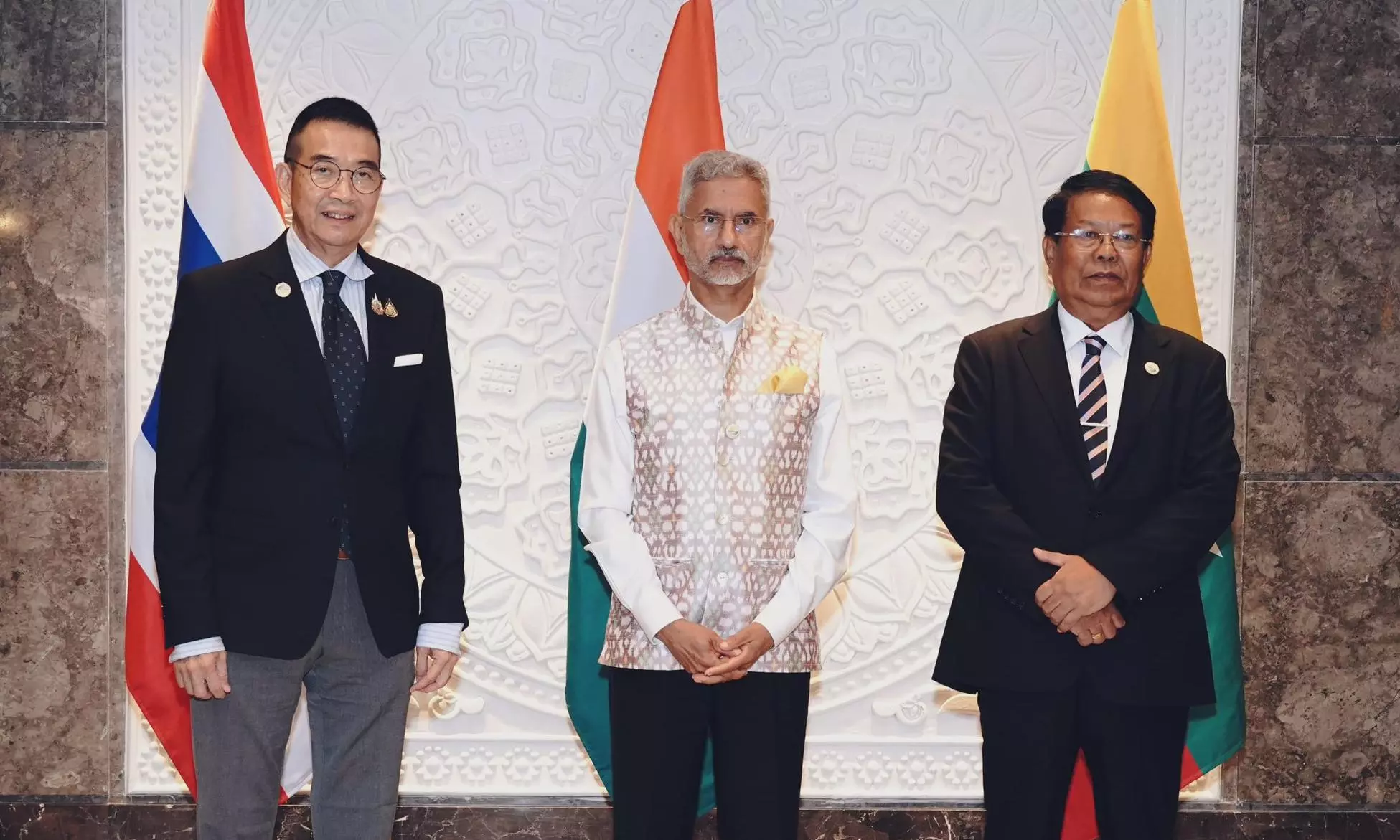India Targets Pakistan as it Tries to Boost BIMSTEC Project

New Delhi: External affairs minister (EAM) S. Jaishankar emphasised the strategic importance of the Bay of Bengal Initiative for Multi-sectoral Technical and Economic Cooperation (BIMSTEC) during the second foreign ministers’ retreat in New Delhi on Thursday. In his inaugural remarks, Jaishankar underscored BIMSTEC's role in fostering cooperation among member nations situated in and around the Bay of Bengal.
Comprising India, Bangladesh, Bhutan, Myanmar, Nepal, Sri Lanka, and Thailand, BIMSTEC includes five South Asian and two Southeast Asian nations. The minister highlighted BIMSTEC's growing significance, particularly since the South Asian Association for Regional Cooperation (SAARC) has been largely inactive since 2016 due to Indo-Pakistani tensions.
Jaishankar's remarks were perceived as a veiled critique of Pakistan, a member of SAARC but not BIMSTEC. The retreat's notable participant was Myanmar's Deputy Prime Minister and foreign minister U Than Swe, marking his second visit to New Delhi within a fortnight amid Myanmar's ongoing challenges under military rule and insurgent activities along its borders.
Following a bilateral meeting with U Than Swe, Jaishankar addressed concerns on social media, emphasising border stability, the flow of displaced persons, illegal narcotics, arms trade, and insurgent activities. He reiterated India's support for Myanmar's return to democracy and the swift repatriation of unlawfully detained Indians.
Jaishankar also held separate bilateral meetings with other BIMSTEC dignitaries during the retreat, focusing on enhancing regional cooperation across various sectors. He positioned BIMSTEC as a key component of India's 'Neighbourhood First' policy, 'Act East Policy', and 'SAGAR' vision, aimed at bolstering collaborative potential in the Bay of Bengal region.
Highlighting the effectiveness of previous BIMSTEC meetings, Jaishankar stressed the importance of generating substantial outcomes for the upcoming BIMSTEC Summit in Thailand, where discussions will centre on connectivity, trade, health, space cooperation, digital infrastructure, capacity building, and societal exchanges.
The implementation of the BIMSTEC Charter, effective since May 20 this year, underlines the legal and institutional framework for regional cooperation, including the admission of new members and observers, and the establishment of agreements with international organizations. BIMSTEC, representing nearly 22 p.c. of the global population with a combined GDP of $ 3.6 trillion, aims to achieve shared and ambitious regional aspirations through comprehensive collaboration.
The retreat concluded with a commitment to further enhance BIMSTEC's role in addressing global and regional challenges while fostering inclusive and sustainable development across member states.

